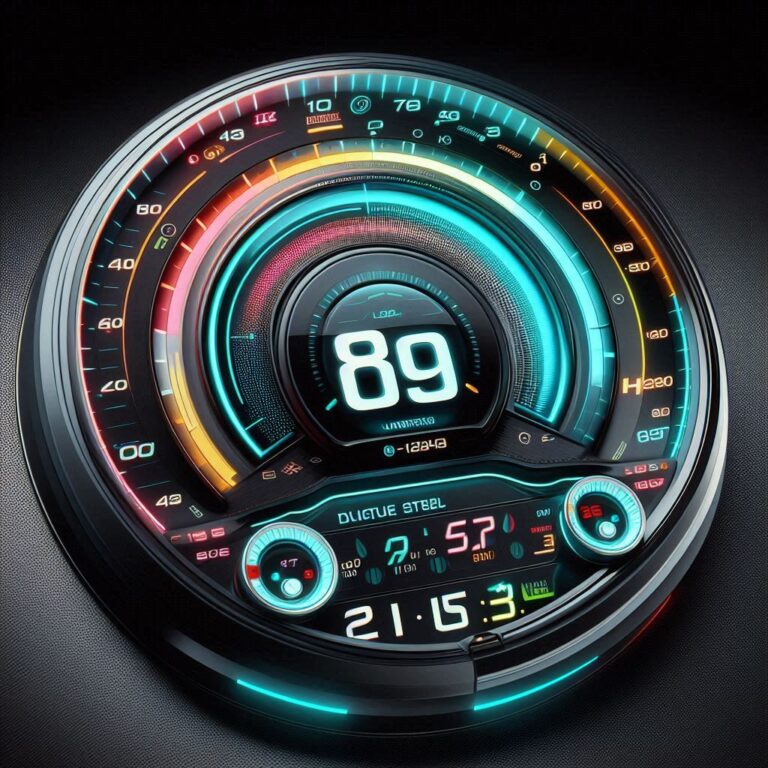Google Search Console Reports My Page As “Crawled – currently not indexed” — What Can I Do?
Dealing with pages that Google Search Console reports as “Crawled – currently not indexed” involves several strategies aimed at improving the quality and visibility of your content to Google. Here are the key steps and considerations:
Improve Content Quality
- Ensure your content is high-quality, unique, and provides value to users. It should satisfy user intent and be relevant to your audience [1].
Perform Manual Indexing Review
- Review the affected pages individually to identify potential issues that may have led to their removal from the index [1].
Optimize Website Architecture and Use Internal Links
- Ensure your website has a clear structure with proper navigation. Poor architecture can affect indexing.
- Link to the content from important pages on your site to signal to Google that the content is valuable [1].
Get Rid of Duplicates
- Remove or optimize duplicate content, as Google tends to penalize sites with significant amounts of duplicated material [1].
Manually Submit URLs for Re-Crawling
- After addressing the issues, manually submit your pages for indexing through Google Search Console. Use the URL Inspection tool to request indexing for specific URLs [1].
Implement Temporary Sitemap.xml
- Consider implementing a temporary sitemap.xml to help solve issues with target URLs from 301 redirects that have been indexed by Google but aren’t yet in the index [1].
Additional Considerations
- Website Structure and Internal Linking: Work on improving your website’s structure and enhancing internal linking to guide Google’s crawlers effectively [1].
- Deciding Which Pages Should Be Indexed: Prioritize which pages should and shouldn’t be indexed to help Google focus on the most valuable URLs [1].
- Using SEO Tools: Utilize tools like Rank Math’s Instant Indexing feature to notify search engines to index your pages instantly [2].
By following these steps, you can address the “Crawled – currently not indexed” status and improve your site’s visibility in Google’s search results. Remember, it’s essential to continuously monitor your site’s performance in Google Search Console and adjust your strategies accordingly.
Further reading ...
- https://www.onely.com/blog/how-to-fix-crawled-currently-not-indexed-in-google-search-console/
- https://rankmath.com/kb/crawled-currently-not-indexed/
- https://www.conductor.com/academy/index-coverage/faq/crawled-currently-not-indexed/
- https://seotesting.com/google-search-console/crawled-not-currently-indexed/
- https://moz.com/blog/crawled-currently-not-indexed-coverage-status
- https://support.google.com/webmasters/answer/7440203?hl=en
- https://www.reddit.com/r/TechSEO/comments/14adeqm/crawled_currently_not_indexed_validation_keeps/ [8] https://www.centori.io/post/how-to-fix-crawled-currently-not-indexed-google-search-console
What Are Some Common Reasons Why a Page Might Be Reported as “Crawled – currently not indexed”?
Common reasons why a page might be reported as “Crawled – currently not indexed” in Google Search Console include:
- Poor Content Quality: Google prioritizes high-quality, unique, and valuable content. If your page lacks these qualities, it might not get indexed [1].
- Duplicate Content: Google dislikes duplicate content. Having identical or very similar content across multiple pages can lead to indexing issues [1].
- Website Architecture and Internal Linking Problems: A confusing website structure or lack of internal links to the page can hinder Google’s ability to understand the importance of the page, affecting its indexing [1].
- Technical Issues: Problems such as server errors, robots.txt rules blocking the page, or incorrect use of meta tags (like noindex) can prevent a page from being indexed [1].
- Manual Removal: If a page was previously indexed but has since been removed manually via Google Search Console or through a removal request, it might show as “Crawled – currently not indexed” [1].
- Crawl Budget Issues: Websites with a large number of pages might face crawl budget limitations, where Google allocates a certain amount of resources to crawl a site. If the crawl budget is exceeded, some pages might not get indexed [1].
- New or Recently Updated Pages: Newly published or recently updated pages might temporarily appear as “Crawled – currently not indexed” until Google processes the changes and decides whether to include them in the index [3].
It’s important to note that seeing a page listed as “Crawled – currently not indexed” is not necessarily an error. Google does not guarantee that every submitted URL will be indexed. However, addressing the above issues can improve the likelihood of getting your pages indexed [3].
Further reading ...
- https://www.onely.com/blog/how-to-fix-crawled-currently-not-indexed-in-google-search-console/#:~:text=Content%20problems%20are%20the%20main,good%20quality%20content%20if%20needed.
- https://support.google.com/webmasters/answer/7440203?hl=en
- https://rankmath.com/kb/crawled-currently-not-indexed/
- https://support.google.com/webmasters/thread/234388627/crawlability-and-indexing-issues-crawled-currently-not-indexed?hl=en
- https://seotesting.com/google-search-console/crawled-not-currently-indexed/
- https://www.reddit.com/r/TechSEO/comments/14adeqm/crawled_currently_not_indexed_validation_keeps/
- https://moz.com/blog/crawled-currently-not-indexed-coverage-status
- https://seomator.com/blog/how-to-fix-crawled-currently-not-indexed-in-google-search-console [9] https://entail.ai/on-page-seo/crawled-currently-not-indexed-why-it-happens-and-how-to-make-google-love-your-site-again
Can You Explain More About How Duplicate Content Affects A Page’s Chances of Being Indexed?
Duplicate content significantly impacts a page’s chances of being indexed and ranked favorably by Google. Here’s a deeper explanation of how duplicate content affects SEO and what you can do about it:
How Duplicate Content Impacts SEO
- Less Organic Traffic: Google aims to avoid ranking pages with content that’s identical or very similar to content found elsewhere on the web. If you have multiple pages with similar content, Google may struggle to determine which one is the “original” or most relevant, leading to decreased visibility and organic traffic for all involved pages [1].
- Potential Penalties: While extremely rare, Google can impose penalties or even deindex entire websites if they engage in deliberate content scraping or copying. This usually happens in severe cases where a site is blatantly duplicating content from other sources without adding any original value [1].
- Fewer Indexed Pages: Especially critical for large websites (e.g., eCommerce sites), Google might refuse to index duplicate content altogether. This means that your crawl budget—a measure of how many pages Googlebot will crawl on your site—might be wasted on duplicate content instead of indexing unique, valuable pages [1].
Best Practices to Address Duplicate Content
- Consolidate Similar Content: If your site generates numerous URLs for slight variations of products or services, consider consolidating these onto a single URL to reduce duplication [1].
- Use Canonical Tags: Implement canonical tags (
rel="canonical") to tell Google which version of a page is the primary one. This helps Google understand which page to index and prevents the dilution of link equity [1]. - 301 Redirects: Set up 301 redirects to direct traffic and search engines from duplicate pages to the original or preferred version. This consolidates the SEO value and ensures that users and search engines are directed to the most relevant page [1].
- Preferred Domain Settings: Ensure consistency in how your site’s domain is accessed (with or without “www”, and with or without HTTPS). Use Google Search Console to set your preferred domain version and implement redirects accordingly [1].
- Regular Monitoring: Utilize Google Search Console to regularly check for duplicate content issues. The “Coverage” and “URL Inspection” reports can help identify duplicate pages, while the “HTML Improvements” section can flag duplicate meta descriptions and title tags [5].
Addressing duplicate content is crucial for maintaining good SEO health and ensuring that your pages have the best chance of being indexed and ranked by Google. By following these best practices, you can mitigate the negative effects of duplicate content on your website’s visibility and performance.
Further reading ...
- https://backlinko.com/hub/seo/duplicate-content#:~:text=Google%20doesn’t%20want%20to%20rank%20pages%20that%20uses%20content,other%20pages%20in%20Google’s%20index.&text=For%20example%2C%20let’s%20say%20that,pages%20will%20struggle%20to%20rank.
- https://support.google.com/sites/thread/228455157/indexing-issues-and-duplicates?hl=en
- https://developers.google.com/search/blog/2007/09/google-duplicate-content-caused-by-url
- https://support.google.com/webmasters/thread/274194996/duplicate-content-effect-on-ranking?hl=en
- https://aicontentfy.com/en/blog/avoiding-seo-pitfalls-tackling-duplicate-content-with-google-search-console
- https://www.lumar.io/office-hours/duplicate-content/
- https://webmasters.stackexchange.com/questions/142670/google-flags-my-dynamic-product-pages-as-duplicate-content
- https://growthmindedmarketing.com/blog/duplicate-content-seo/
- https://www.semrush.com/blog/duplicate-content/ [10] https://neilpatel.com/blog/myths-about-duplicate-content/









